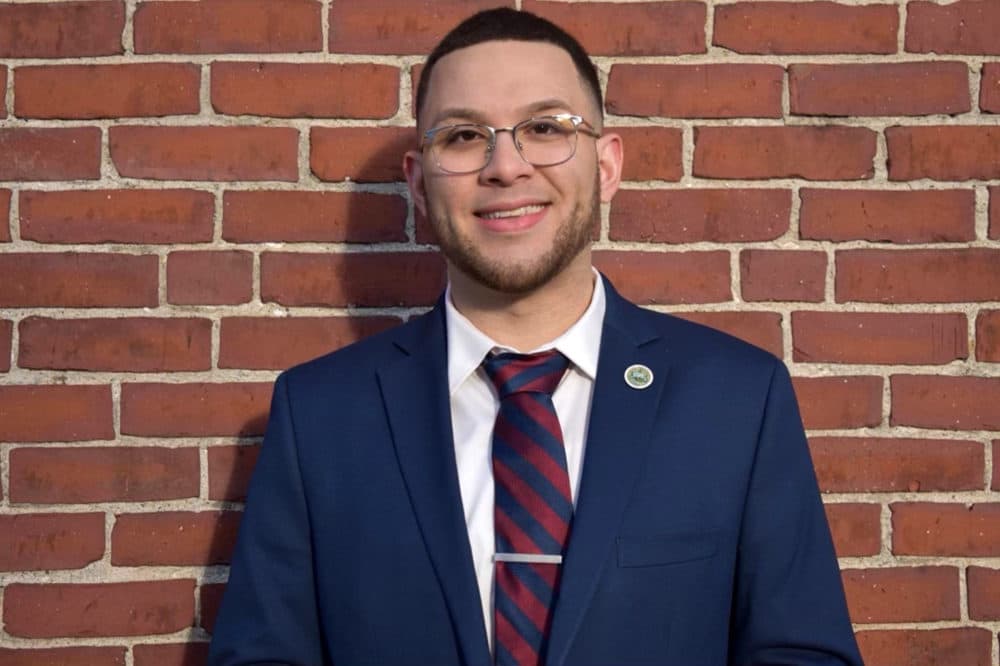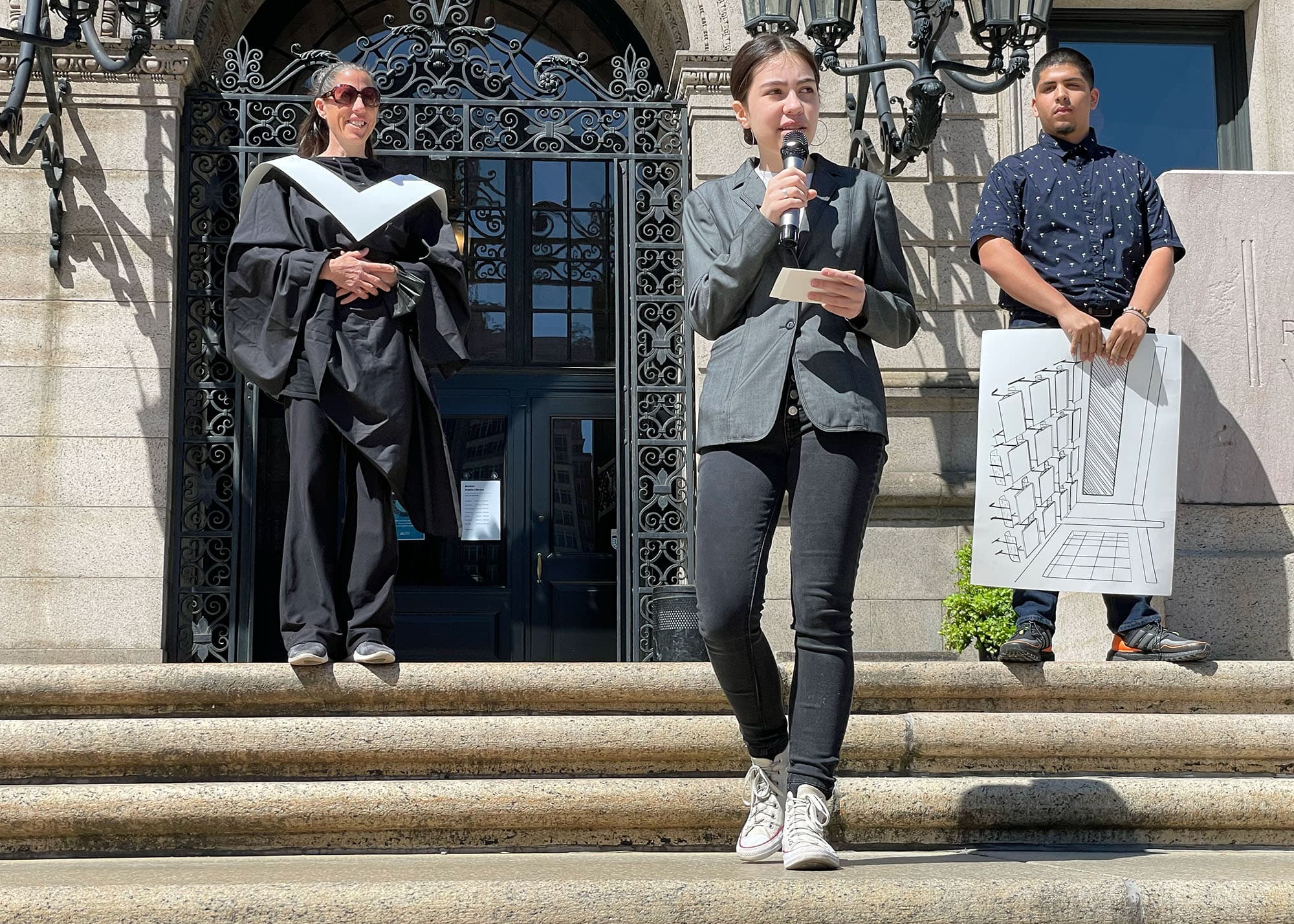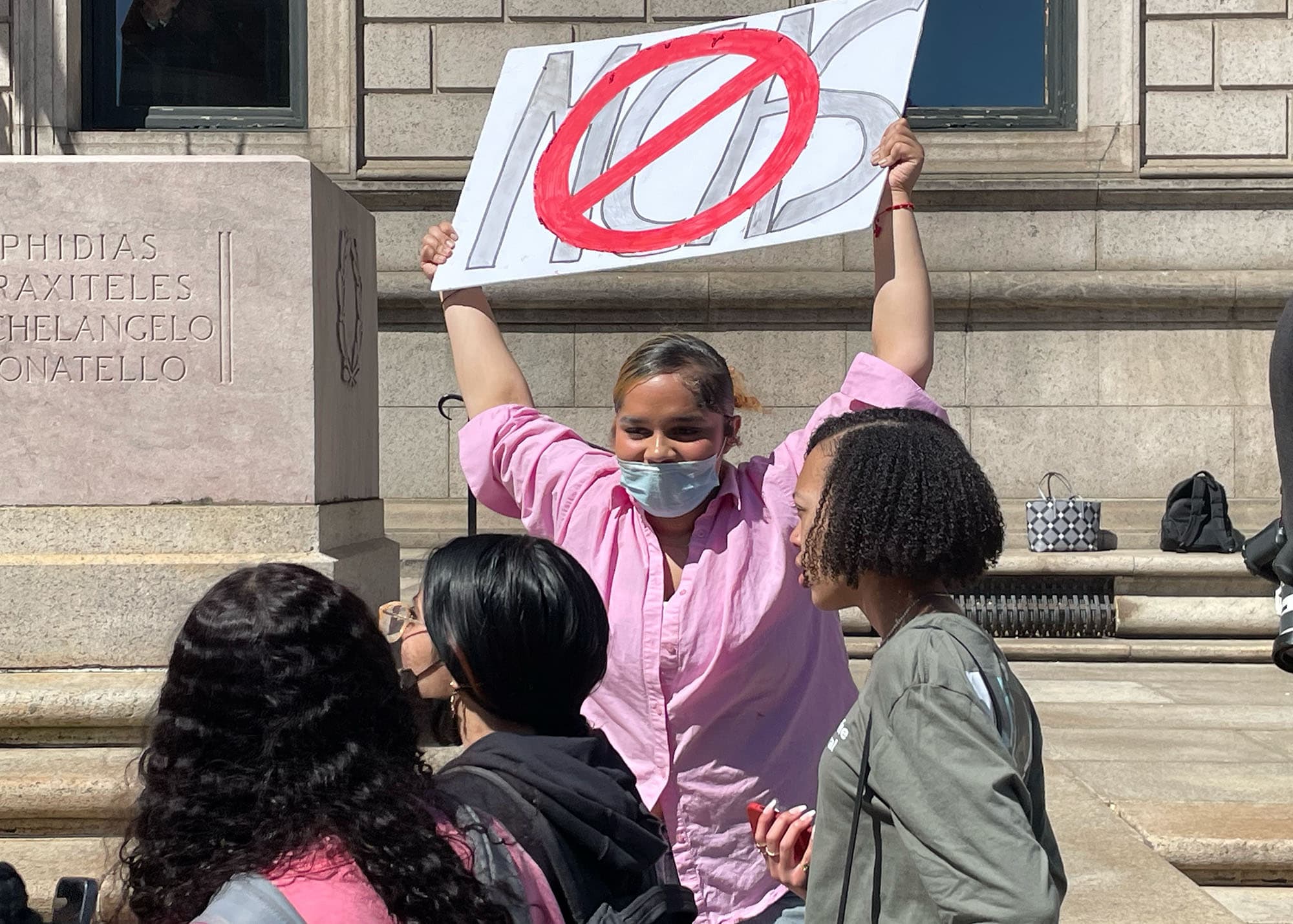Advertisement
The high-stakes MCAS is back — and may get harder. Critics ask if we need it at all

The COVID-19 pandemic gave three classes of Massachusetts' high schoolers a respite from the statewide requirement they pass a 10th-grade standardized test before graduation.
But now the test, known as the MCAS, has come back — and may get harder to pass.
The state’s board of elementary and secondary education will soon vote on whether to raise the MCAS passing score in English and language arts, starting with this fall's incoming ninth-graders.
State officials say the move is designed to make sure that high school students, whose learning was set back by the pandemic, graduate ready for college and careers. But the move has mobilized local officials and activists, who say Massachusetts has a rare opportunity to leave its high-stakes test behind.
While standardized testing is required under federal law, “exit exams” are not. Massachusetts is one of only 11 states still using a test as a high school graduation requirement.
The requirement weighs most heavily in immigrant-rich communities like Lawrence. As vice chair of its school committee, Jonathan Guzman says many young people there are "upcoming leaders — book-smart, and able to solve problems in new ways."
But roughly a third of them fail both the math and English sections of the tenth-grade MCAS on their first attempt.
Guzman's own MCAS experience was just over a decade ago. Even with a diagnosis of ADHD, he had tested into the prestigious Escuela Pablo Casals in Puerto Rico. "I had always excelled in science, and was really interested in health science in particular," he said.
Guzman, his mother and his younger brother came to Lawrence in 2011, in part so that he could pursue that dream. He was a top student at a learning center there, where he took his first lessons in English. But then he moved to Lawrence High School, where — within weeks — his teachers told him of an important, upcoming test.
Advertisement
"When I got moved to Lawrence High — literally I'd say within weeks of me being there — they started talking to me about taking this test," he said.
It was the MCAS science exam in biology, his best subject. But even with extra time and a Spanish-English dictionary in hand, Guzman recalls a near-impossible challenge.
“I was translating word-by-word and then putting it together into a sentence, and trying to figure out: is this a trick question? Or is this the definition that they’re looking for?" he said.
Guzman failed the test on his first attempt. And the memory still stings. He and his family questioned whether college was a reasonable dream.
"Do we want to invest in this ... when you cannot even pass a high school test?" he asks now.
Rigor or rigidity?
The 10th-grade MCAS has been a graduation requirement for almost 20 years. And for some state policymakers, a rigorous, high-stakes “exit exam” remains a big part of why Massachusetts leads the nation by many metrics.
State education commissioner Jeff Riley has pushed to raise the cut score in English. Back in April, he said there are "multiple reasons to set a higher standard” on that section of the test.
Despite notable exceptions like Lawrence, the statewide passing rate is high — around 91%. And research conducted at Brown University found that many students with low passing scores on the 10th-grade test are disproportionately unlikely to complete four-year college or earn a living wage as adults.
The team at Brown was led by John Papay, a professor of education and economics. He noted that some research backs the idea that a more rigorous exam can spark better performance. "I think that there’s at least an argument to be made for [the idea that] raising standards raises expectations," Papay said. "And the goal of the system, then, is to support all students to meet those standards.”
But some students say that those high standards take an unacceptable toll on their learning.
In May, students from Boston’s Snowden International High School gathered in Copley Square to put the MCAS on "trial," in a theatrical form of protest.

Through portable speakers and mostly in rhyme, Snowden freshman Gigi Greene acted as prosecutor, alleging that standardized tests are discriminatory, outmoded and get in the way of real learning.
Greene noted that much of her first-year physics class at Snowden was consumed by test prep and review, rather than learning new concepts. “So if this testing doesn’t benefit students or teachers… then why are we doing this?” she said.
The crowd of a few dozen students responded with cries of 'Why?' The MCAS, represented by a student wearing a bag over his head, was eventually led off, "guilty."
Greene's classmate, Channel Mejia, tried to answer her question. “I feel like they have the test to try to identify our knowledge and put that in a score and a label," Mejia said. "But that really does not matter — because our strength is not all just put into the couple of hours that we take the MCAS.”
Leaving high-stakes tests behind?
And the pandemic, with its disruptions to both learning and test-taking, has seemed to undermine the system of high-stakes tests across the board.
Boston's new exam school admissions policy will use a test, but will also take students' backgrounds into greater account. And several of the country's most selective universities enacted temporary “test-optional” admissions policies during the first pandemic summer. Some like Harvard, have extended those policies for years to come.
Lisa Guisbond, the executive director of Citizens for Public Schools and a longtime critic of the MCAS, notes that Massachusetts schools could simply follow suit.
"There’s a precedent here. They waived the [graduation requirement] for three classes of students — and the sky did not fall," Guisbond said. "I think they should just continue waiving it."

Back in Lawrence, Jonathan Guzman worries that a tougher test will mean more high school dropouts — though his own story ended happily.
Back in 2011, he was determined to overcome the disappointing score from his first try at MCAS biology. So he hit the books — enrolling in every test-prep and tutoring program he could find. And on the second attempt, he passed. He went on to graduate from Fitchburg State University in 2018 with a degree in biology.
That could be seen as evidence of the idea that a meaningful, difficult test can get the most out of students, wherever they come from. But Guzman himself is not convinced. “That’s my story, right? And I can tell you from experience, of seeing my friends saying, ‘you know what, this is not for me.’ Dropping out.”
Guzman notes that the MCAS has social and political effects beyond the lives of students. Low scores were part of the rationale for the state's takeover of the Lawrence Public Schools 11 years ago, when Guzman was still in high school. That receivership — and the district's relatively low scores — have both persisted to the present day.
Guzman objects to the test's effect of creating "winners and losers." He worries that his own success story will remain an outlier — locking Lawrence, and places like it, on the losing side of a high-stakes game.
This segment aired on July 25, 2022.
